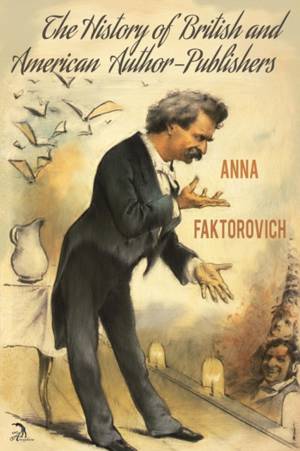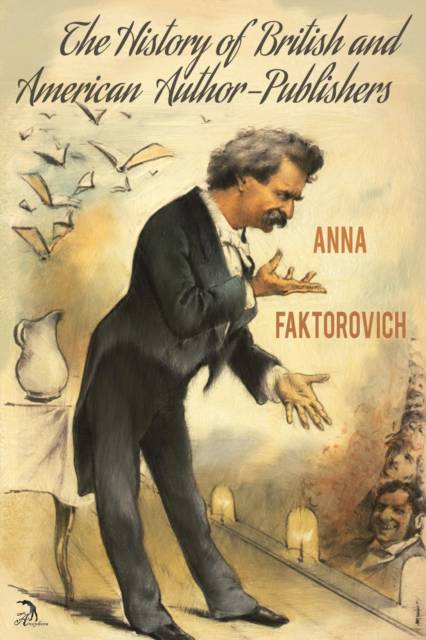
- Afhalen na 1 uur in een winkel met voorraad
- Gratis thuislevering in België vanaf € 30
- Ruim aanbod met 7 miljoen producten
- Afhalen na 1 uur in een winkel met voorraad
- Gratis thuislevering in België vanaf € 30
- Ruim aanbod met 7 miljoen producten
Omschrijving
The mainstream publishing industry has popularized the stereotype that "self-published" books are inferior to "traditional" ones because the author does not receive an advance and the services provided are less professional. The reality is that the Big Four publishers attained their enormous market share by at least initially relying on author subsidies.
This book describes the road some of the world's top authors took to self-publication. Charles Dickens self-published A Tale of Two Cities in his periodical, All the Year Round. Sir Walter Scott published most of his fiction and poetry with Constantine and Ballantyne, who publishers in which he was heavily invested. Scott's self-publications included his best-selling Waverley series, which established the historical novel genre with Ballantyne. The Liberal only survived for a few issues, and yet its founders, Lord Byron and Percy Shelley, published outstanding radical works in its pages: "The Vision of Judgment" and "Lines to a Critic." Virginia and Leonard Woolf's Hogarth Press published nearly all of Virginia's writings; these works are still used by feminists and birthed the stream of consciousness movement (a style that was too unique for "mainstream" publishers). Edgar Allan Poe spent a lifetime working to create his own independent journal, only succeeding in a brief ownership of the Broadway Journal, a power he used to speak out against plagiarism with pieces such as, "Voluminous History of the Little Longfellow War." Herman Melville paid Harper $29,571 for 350 copies of Clarel. Mark Twain spent $1.3 million (in today's money) to print Old Times on the Mississippi with J. R. Osgood. Henry Luce and Briton Hadden started Time Inc. and Time because they were frustrated reporters seeking more power and independence. Dudley Randall founded the Broadside Press in part to publish his own books like Cities Burning. Alice Walker published an introduction to The Spirit Journey after founding a press with her lover, Wild Trees Press, and might have kept it going longer if major publishers did not start snatching up all of her own innovative full-length works.
Without author-publishers: the sun would still revolve around the earth (Galileo) and book printing would lack exquisite artistic details (Rembrandt). And Americans would still be living in the colonies of the United Kingdom (Benjamin Franklin). It is harder to find an innovative scientist, politician or creative writer who did not self-publish than those who did.
Specificaties
Betrokkenen
- Auteur(s):
- Uitgeverij:
Inhoud
- Aantal bladzijden:
- 370
- Taal:
- Engels
Eigenschappen
- Productcode (EAN):
- 9781681143736
- Verschijningsdatum:
- 31/12/2017
- Uitvoering:
- Paperback
- Formaat:
- Trade paperback (VS)
- Afmetingen:
- 152 mm x 229 mm
- Gewicht:
- 539 g

Alleen bij Standaard Boekhandel
Beoordelingen
We publiceren alleen reviews die voldoen aan de voorwaarden voor reviews. Bekijk onze voorwaarden voor reviews.









